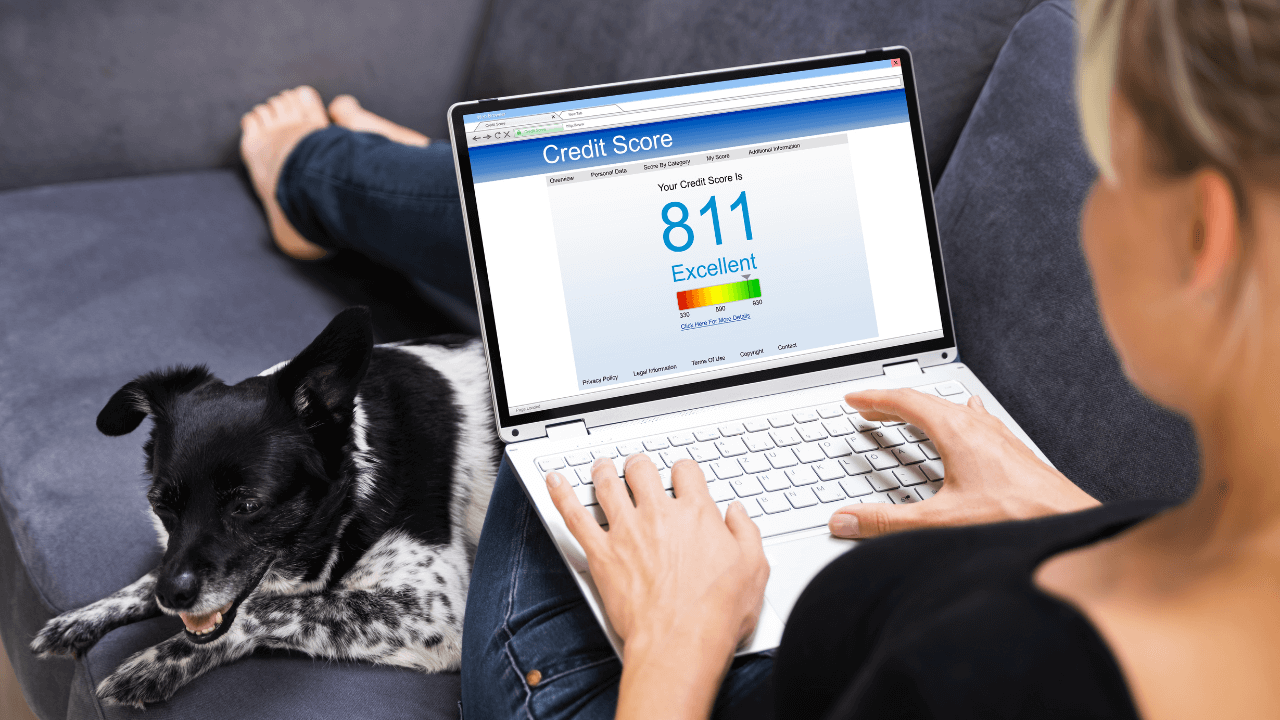Doing business in the UK means you’ve probably needed to take out credit or loans at some point, and most likely have also needed to rent or buy office space. If you have a good credit score, it can get you more than just business loans or credit cards – it basically shows your ability to repay your loans and plays a huge role in advancing your company's financial future. It’s therefore important to know your credit score and make sure it’s good. In order to gain a good credit score, you'll need to understand the UK’s credit score system and how it works.
In this blog post we’ll share all the details that will help you build a strong credit score and show you how you can leverage that to gain a sound financial future. So, let's start exploring!
Let's understand what a credit score is
Before jumping into the details, it's important to know what exactly is a credit score. A credit score is a three-digit number that represents your creditworthiness. When we say your "worthiness", it means your credit score measures your financial history, including your borrowing and repayment habits, outstanding debts and credit usage.
So whenever an institution asks for your credit score, it means they want to check whether or not you are a risky borrower. This also means that if you have a high credit score, you're more likely to be approved for loans and credit cards. A high credit score indicates that you have a sound history of managing your finances responsibly. On the other hand, if your score is low, you may not be approved for credit applications (or beyond that) or be offered less favourable terms.
Why you should maintain a good credit score
A good credit score goes beyond helping you secure loans and credit cards. It can impact various aspects of your business life, such as:
- Renting an apartment or getting insurance – More and more landlords want to see your credit scores to screen your payment capacity. So, if your credit history shows a low score, you may be considered a high-risk tenant by the landlords. Similarly, insurers may also use your credit information to determine premiums. If you have an unsatisfactory score, you may end up paying higher insurance rates.
- Easier access to credit: A high credit score has the potential to make you an attractive borrower. This means you are more likely to get approved for credits and loans by banks or financial institutions. This can be extremely beneficial if you are planning to grow or expand your business.
- Lower interest rates: A good credit score can also come in handy to save money on interest rates. A strong score qualifies you for lower interest rates on loans and credit cards.
- Better terms: Along with lower interest rates, a healthy credit score can help you to get better terms on loans and credit cards like longer repayment periods and bonus credit limits.
- Better negotiating power: Responsible financial decisions also offer the advantage of improved negotiating power with creditors and lenders. This means you'll not only save money but also be in a sound position to negotiate the terms and conditions of loans and credit cards.
- Access to more opportunities: A good credit score can also open up more opportunities in various areas of your business transactions. For example, it'll ease your process of renting an office space in the UK or an apartment while you live in the country.
But what does it actually mean to have a good credit score? Knowing this is important because it can help you figure out what you need to do to improve your current score.
https://wamo.io/blog/what-is-a-startup-loan
What is a good credit score?
There isn't really one answer to this question because the definition of a "good" score changes from person to person. For example, if you have applied for a loan and are waiting to get approved by the lender, the decision solely remains on the lender's minimum requirements. They will likely examine your financial activities, spending patterns and repayment patterns.
On the other hand, if you are trying to get the best interest rates possible, then you'll need to show an excellent credit score – typically 750 or higher.
So while there seems no definitive answer, in general, a good credit score lies between 670–739. For most people, anything above 700 is considered good and anything below this is called a fair or poor score. A poor score can limit your credit choices and you'll eventually be paying more interest rates as well.
Your credit score is just one of the factors that lenders look at when considering your application, so even if you don't have a good credit score, there is a chance you’ll still be approved for credit or a loan.
Let's have a look at the different categories of credit scores
- Poor credit: 300–579, you will mostly be rejected for credit cards, mortgages or loans
- Fair credit: 580–669, you will more likely be rejected for loans and mortgages, but have chances of getting credit cards with low limits
- Good credit: 670–739, you will be considered for loans and credit cards, but not with the best deals
- Very good credit: 740–799, you will be considered for all loans and credit cards, however, with some conditions on it
- Excellent credit: 800–850, you will be considered for the best loans and credit cards, depending on the institutions
There are a few ways to find out what your credit score is if you don’t already know. You can run a quick credit check with one of the major credit bureaus – TransUnion®, Equifax® or Experian® and Credit Karma®.
How are personal and business credit scores calculated in the UK financial system?
Some countries maintain a type of "universal credit score" for the person with borrowings. However, credit scores are calculated differently in the UK. Let's understand how your credit scores will be calculated in the UK.
Typically, everything revolves around credit reference agencies (CRAs) such as Experian, Equifax and TransUnion. They collect your information from different resources like public records, banks, lenders, and other sources to generate a score.
Each CRA uses a unique measuring scale to calculate your credit score, and you can experience a slight difference in your credit score ratings between the agencies.
A good thing to know is that your personal credit score can impact your business credit score, especially if you’re a sole trader or if your business has a limited credit history. This is a good reason to keep a good personal credit score as well as a good business credit score so that you’re able to access the credit and financing you need for your business.
What details are in the UK's credit report?
Since we have talked so much about credit reports, you must be wondering what exactly comes in the UK's credit report. A credit report majorly records your credit history and details of how well you have managed your finances in the past. In the UK, credit reports typically contain the following information:
1) Personal information – This includes your name, date of birth, address, current reference agencies and any additional personal details that lenders and CRAs may use to identify you.
2) Credit accounts – A list of all the credit accounts to your name, including credit cards, loans and mortgages. It will also show the credit limit or loan amount, the outstanding balance and your payment history.
3) Public records – This will include records of bankruptcies, court judgments and your registration on the electoral rolls.
4) Credit inquiries – This includes a list of all the companies from which you have requested your credit report in the past 2 years. You can expect compiled information about your lenders, credit card companies and other financial institutions that you have dealt with.
5) Financial associates – If you have a joint account with someone or have applied for credit with someone else, it will be listed under this section. This will be listed on your credit report as a financial associate.
Common factors that affect your credit score
Your credit score gets affected by every financial transaction you make. This means your financial transactions can either make or break your credit score. Here are some common factors that affect your credit:
1) Defaults: Unfortunately, late or missed payments can have a significant negative impact on your score. If you aren’t able to pay back what you have borrowed, it can badly affect your credit score for up to 6 years.
2) Credit utilisation: The amount of credit you are using compared to your credit limit, also known as credit utilisation, is another important factor. High credit utilisation can negatively impact your credit score. If you want to maintain a good credit score, try to keep your credit utilisation below 30% of your available credit. So for example, if you have a credit limit of £10000, then don't go beyond £3000. If you have to go beyond that mark for some reason, make sure to pay off the balance quickly. This way, a high balance will have less opportunity to cut down your credit score!
3) Length of your credit history: Lenders would like to see how well you have managed your finances and credit in the past. Your credit report only accumulates details of your active credit account, and when you shut down your credit cards, you are also losing access to your credit history. To build a good credit history, it's always recommended to keep your credit cards, even if you are no longer using them.
4) Credit mix: Another important aspect is your credit mix – it is a mix of your different types of credit cards (also known as revolving credit) and loans, mortgages or car loans etc. ( also known as instalment credit). A good and well-managed mix of credits can also increase your credit score. But don't worry if you don't have a lot of credits under your name, you can still build a good credit score with just your credit cards.
5) Receiving a county court judgement: Receiving county court judgments (CCJ) or defaults on your credit card payment can directly and negatively impact your credit score. This usually happens when you don't keep up with the repayment of your credit card debt or other loans.
6) Paying off your credit card each month: One of the best ways to keep a healthy score is to pay off your monthly credit card bills in full. If you’re making minimum payments, it might seem like you are struggling to keep up with your debt, and this can be a red flag for lenders. Try your best to pay off your credit card balance in full each month, and if you can’t then at least try to pay more than the minimum payment.
7) Applying for too many loans or credit cards: If you are applying for too many loans or credit cards within a short period of time (usually within 6 months), it can be a red flag for the lenders. Too many loan applications can indicate that you are desperate for money and cannot repay your debts. So try to limit the number of applications you make, and if possible, space them out over time.
8) Going over £15,000 in credit card debt: Having a lot of credit card debt (more than £15,000), is likely to get your application turned down by the lenders. This is because it looks like you're struggling to keep up with your debts and may be unable to repay them. So if possible, try to pay off your credit card debt as soon as possible.
About business credit card brackets
Just like your personal credit scores, even business credit scores in the UK are broken down into different brackets. Lenders use these brackets to determine the risk involved in lending money to a particular business. Here’s a quick rundown of business credit score brackets:
- Excellent (90–100): Businesses with a score in this range are considered low risk and have a higher chance of getting approved for credit with the best terms and interest rates.
- Good (80–89): Businesses with a score in this range are still considered low risk but may face slightly higher interest rates than those with an excellent score.
- Fair (60–79): Businesses in this range are considered medium risk and may face higher interest rates and stricter lending terms.
- Poor (40–59): Businesses in this range are considered high risk and may have difficulty getting approved for credit or may face very high interest rates and unfavourable terms.
- Very Poor (0–39): Businesses in this range are considered very high risk and may have difficulty getting approved for credit or may only qualify for high-interest loans or credit lines.
Let's discuss ways to improve your credit score
There are different ways to improve the credit score of your business. Here are some important things to keep in mind with regards to improving your business credit score:
- For a good credit history, it’s recommended to open two or more credit accounts. This can help you in building a sound history while helping a convincing credit mix appear in your credit file.But make sure that you are not going overboard and risking your finances.
- If you cannot pay the entire amount that you owe to the credit card, pay a minimum amount every month.
- Check for errors or mistakes on your credit report. Even a minor mistyped letter in your postal address is enough reason for the lender to reject your credit application.
- Hold your cards for at least five years or more. Long and constant use of your credit accounts can help you get bonus points from CRAs.
- This one is probably the most important tip: borrow as much as you can afford! Don't overspend or miss any payments to maintain a good credit score.
How to check your credit score
There are three main credit reference agencies that offer credit reports: Equifax, Experian, and TransUnion. To check your credit score, you can use any of these agencies. Here's how to do it:
- Equifax – You can check your credit report and score for free from Equifax. You can sign up for a 30-day free trial of their Credit Report and Score service. Once you go beyond the trial period, you will be charged a monthly fee. However, you can cancel your subscription before you are charged anything.
- Experian – Experian is another free service to get access to your credit report and score. It works similarly to Equifax’s subscription model and Experian’s paid service also offers CreditExpert. It gives you more detailed information and alerts you when your score fluctuates.
- Credit Passport – Credit Passport also offers free and paid subscription plans with various features that understand and assess your business credit. The platform uses bank data to create its insights.

With the information we’ve covered in this blog post, you should better understand the importance of your personal and business credit score and know how to maintain or improve it. Having a good credit score creates ease when working towards your financial goals. While increasing your credit score is no overnight game, you can start with tiny steps and organised financial habits to increase your score.
If you want to start building your credit score, the first step is to check your current score on the sites mentioned above. Next, it's time to jot down your goals and figure out if your score needs to be improved or has to be maintained.
Lastly, keep following wamo for more tips and guidance to boost your business’s financial health in the UK.








